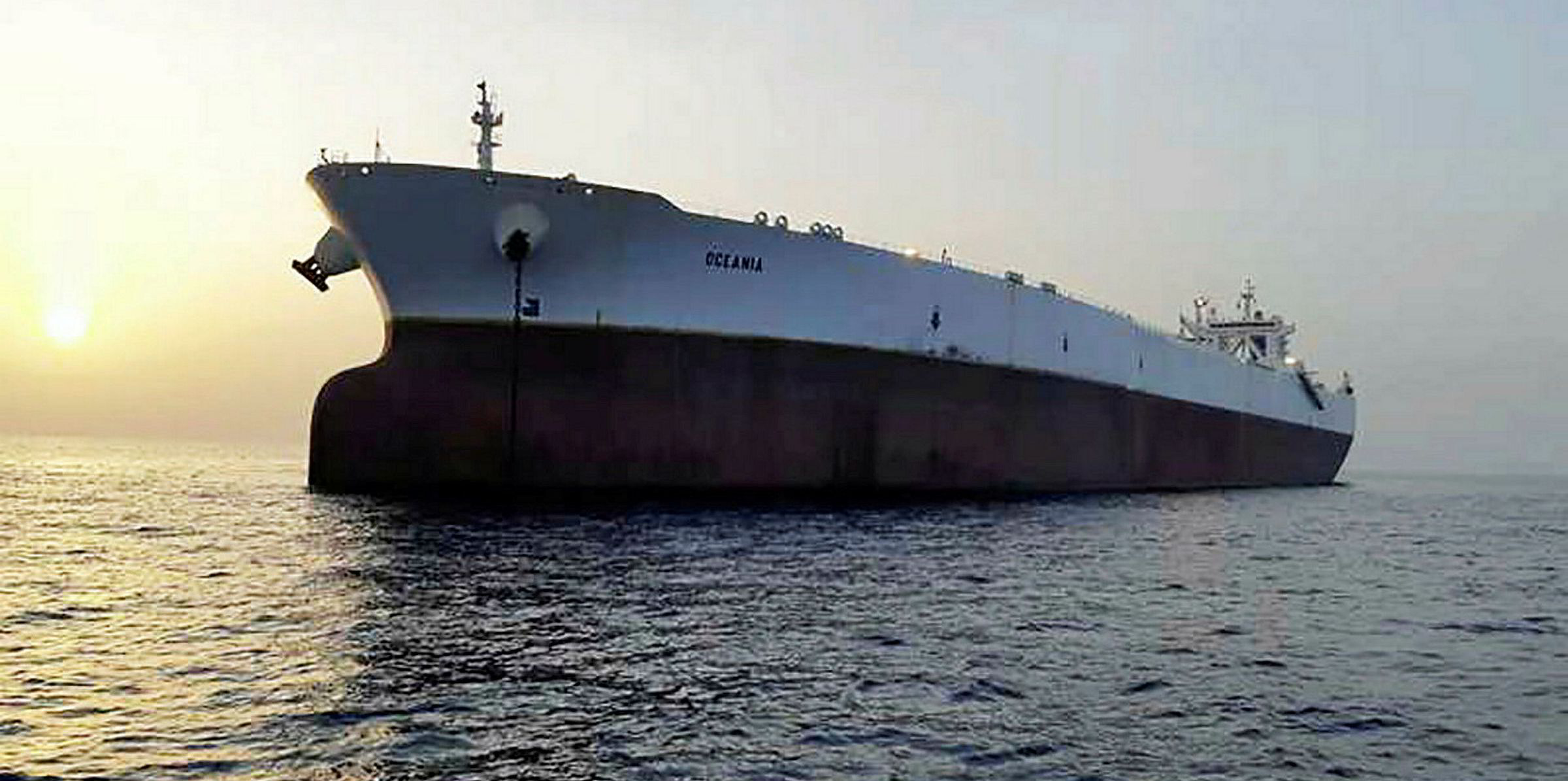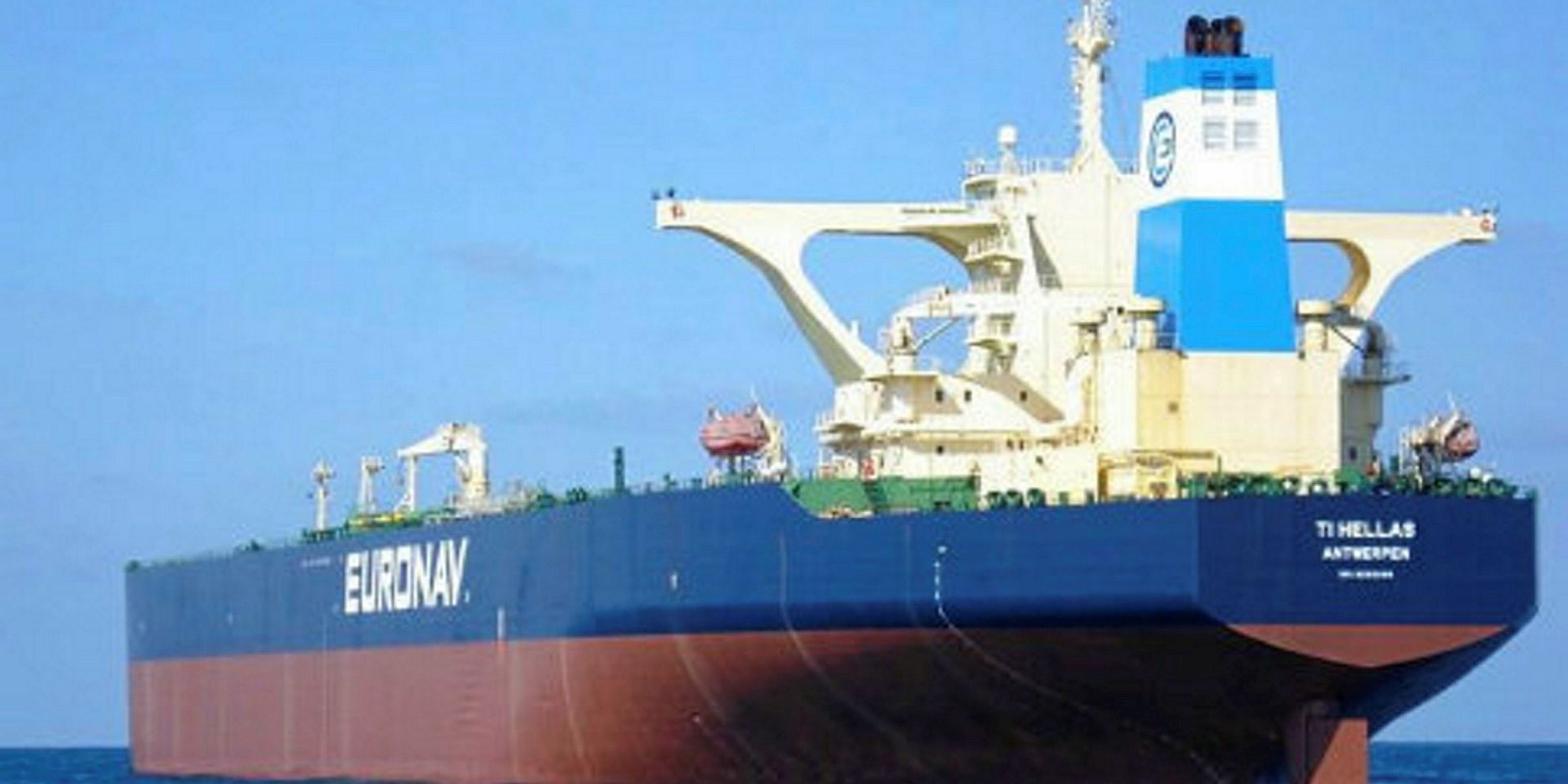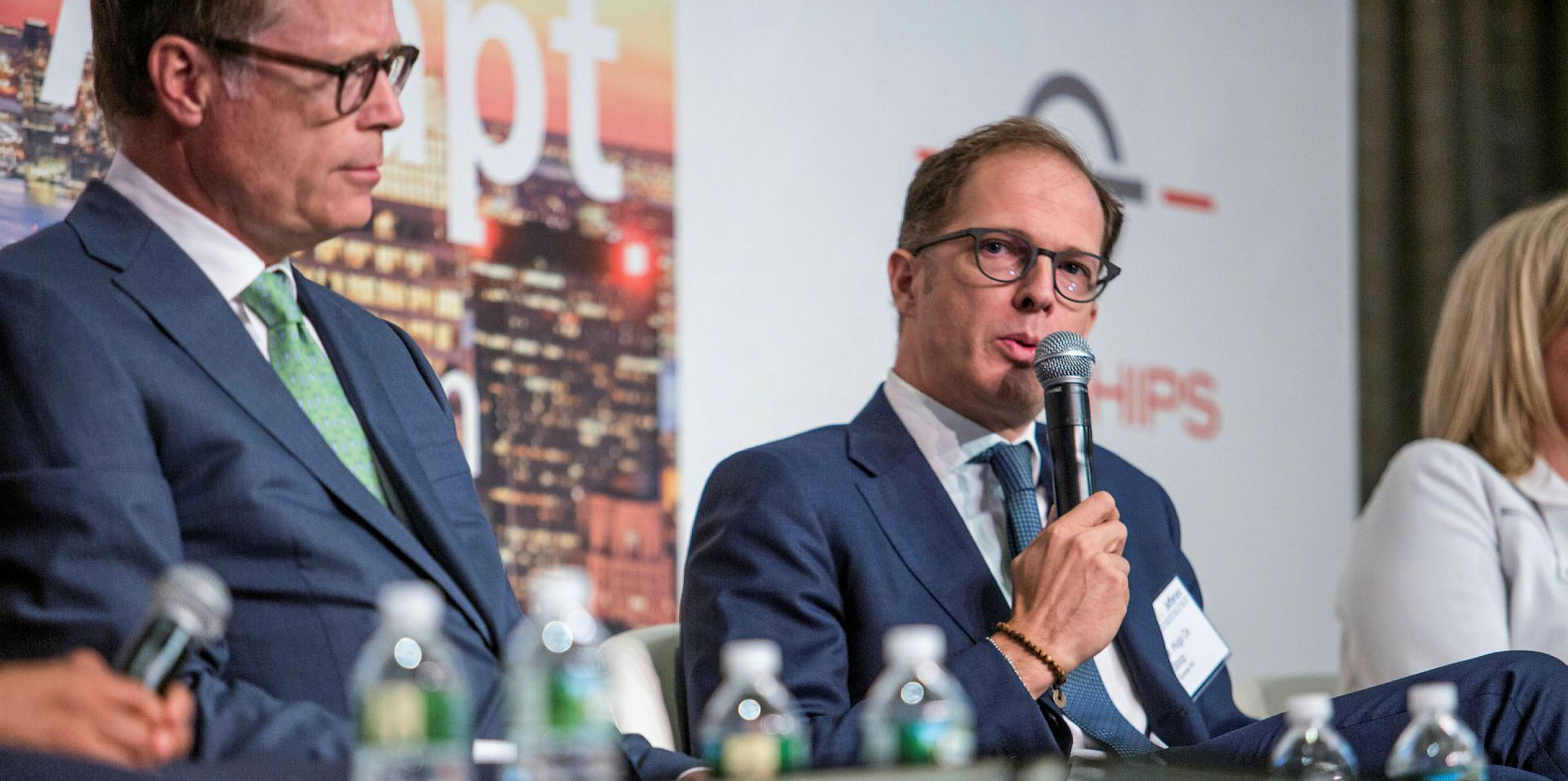Euronav has signalled it could begin selling off some of its IMO 2020-compliant fuel cargo stored on an ULCC off Malaysia.
In January, chief executive Hugo De Stoop had joked that the company was being "selfish" and keeping the bunkers for itself as the spread increased between low-sulphur and high-sulphur fuel oils.
But the Belgian owner said in its first-quarter results that the value of the remaining oil on board its 442,000-dwt Oceania (built 2003) had fallen $56m below its book value.
Euronav avoided a write-down, however, due to the robust freight market in the second quarter and possibly the rest of 2020, which will offset the higher average consumption costs of the bunker oil consumed from the Oceania.
"The market has not developed as anyone expected in terms of fuel pricing or in terms of stress between LSFO and HSFO during 2020 and certainly recently," De Stoop told analysts.
"And the prices as well as the spreads between those two products have now fallen to a level below our entry cost."
He added that the company will continue to look at opportunities related to the Oceania.
"The fuel is being sold to create value around this operation," he said.
A company spokesman told TradeWinds that selling the fuel, which was purchased in 2019, was just "one of many options under consideration".
Still cheaper than scrubbers
De Stoop added: "Let's all remember that if we had chosen a strategy of retrofitting scrubbers on our fleet, we would have had to deploy more than $350m."
In December, Cleaves Securities calculated the Oceania cargo had gained $52m in value.
Euronav has used 200,000 tonnes, leaving 220,000 tonnes on the vessel.
The $56m paper loss was calculated at the end of the first quarter.
"And when you look at the price of gas oil or the price of LSFO, it's obviously higher than that today. So I think we were already right in a way not to consume it directly, but to wait until it bounces back, which is the case today," De Stoop said.
"Will it bounce back to the level of which we acquired it? Probably not. But let's not forget that the game plan was really to assure the quality, to assure that we could smoothen out the exacerbation of the market because it was a new market."
That was achieved, he added.
"So even if we consume it at prices slightly above the market, I don't think that people will notice it very strongly in our P&L," the executive said.
Lessons learned
De Stoop also said that the company has learned a lot of things about fuel procurement.
"And touch wood, we have not had any bad stems on board the vessels, whereas we've heard a lot of horror stories of LSFO being obviously compliant, but creating a lot of problems in the engine room. We haven't had that because we have been able to test all the material," he said.
"So again, let's not focus too much on the money that is lost on paper at the moment. You can count on us to try to create value or at least limit the loss. And again, very, very happy not to have spent $350m on scrubbers."
The company will continue to consume "a little bit" of fuel from the Oceania, and also buy in the market, the chief executive said.
"We are buying wholesale in large quantities. We benefit from a discount. And then we distribute from the Oceania to our fleet. And most of it is coming from the market, but some of it is coming from the Oceania. So we're trying to blend it down," De Stoop added.
Euronav's other ULCC, the 442,000-dwt Europe (built 2002), is also being marketed for storage purposes, De Stoop said.
But the market is structured for VLCC and suezmax cargo sizes, he added.
"So whenever you have a ship and you can offer space, which is 3.2 [million barrels], it's a bit of an odd cargo size. And so you need to combine it. It's not easy. And when you need to discharge, it's also not easy because you will need to sell it in two or three lots or more."
He said the Europe is under contract currently for $50,000 per day.
The charterer had an option to extend it last month for another six months at the same rate, but did not.
So the vessel has been fixed again at a slightly lower rate, after the present deal ends.






